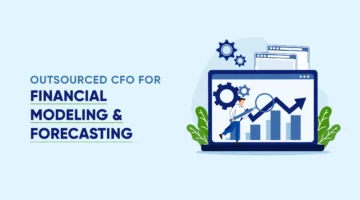The Differences Between Financial Forecasting and Budgeting—and Why You Need Both
Differences Between Financial Forecasting and Budgeting
The more financial visibility, controls, and planning you have within your business, the better. Financial plans help to guide decision-making within your organization, and comparing forecasts to actual outcomes provides crucial data about the overall health and efficiency of your business. This is why closely managed budgets and forecasts are essential. While both serve an important purpose—allowing businesses to predict outcomes and achieve objectives—there are key differences between forecasting and budgeting that we’ll outline below.
Financial Forecasting
Financial forecasting combines past information with market data to predict whether a specific business outcome will be achieved—such as the amount of revenue a business generates through sales. Forecasting seeks to analyze past, current, and future financial data to help inform strategic decisions. Types of forecasts can include sales, cash flow, budget, and income forecasting. A good forecast should include:
- Prior results weighed against current scenario
- A future timeline—over what period are you forecasting the results?
- Assessment of market/industry risks
- Best- and worst-case scenarios relating to revenue, expenses, and outcomes
Why is Forecasting Important?
Implementing regularly updated forecasts can assist your organization in several ways. Forecasts help to observe future costs and revenue trends that can impact your business in the short- and long-term. Your business can utilize forecasts as a tool for planning, preparing for changes in the market, and adapting to uncertain circumstances. Essentially, it helps you to more effectively predict risks and adapt accordingly. Rolling forecasts are ideal, as they allow you to make adjustments as needed. For example, it was difficult to predict the severe impact that the COVID-19 pandemic would have on businesses, specific industries, and supply chains. A rolling forecast makes planning an ongoing process, rather than a monthly or quarterly update.
Budgeting
Budgeting entails planning your company’s revenue and expenses for a given period of time, generally quarterly or annually. It also includes analyzing available cash flow, determining operating costs and funding for new initiatives, then allocating those resources accordingly. The budget helps provide your business with important measurement metrics that can be used to evaluate spending and financial progress. A good budget should include:
- Planned revenue, including types and when to expect it, especially if your business is seasonal
- Fixed costs, such as rent, utilities, property taxes, salaries, and more.
- Variable costs, such as commissions, travel expenses, maintenance costs, and more.
Why is Budgeting Important?
A realistic, well-constructed budget allows your business to consistently track where it is financially. This insight highlights existing operating costs as well as the resources available to allocate to growth initiatives. A strong budget can dictate whether or not you can hire additional employees, invest in new product lines, or purchase and implement an ERP to better manage your business.
Budgeting is especially important for small businesses that often operate on smaller budgets or debt funding. A poorly managed budget can have a devastating effect on small businesses.
Forecasting and Budgeting Combined
For maximum financial visibility, forecasts and budgets must work together. The budget sets the initial target, while the forecast analyzes the viability and progress toward the target. A budget is typically static, as it is planned once for a specific time period, while a forecast should ideally be rolling and updated regularly. Additionally, a forecast does not look at how anticipated results differed from actuals, while a budget does. While a forecast can be used to help build a budget by predicting, for example, projected sales, it lacks aim without a budget in place. In short, both rely on each other to help you achieve operational goals.
Your budget serves as the roadmap for your business, highlighting crucial financial checkpoints as your business progresses. With progression, however, comes unforeseen circumstances and changes, which rolling forecasts can help you navigate. If your business does not currently utilize budgeting or forecasting, or you doubt the efficacy of the budgets and forecasts in place, this is an excellent area to bring in an outsourced financial consultant. A consultant can work in tangent with your existing team to analyze the business’ financial position, establish metrics, and establish accurate budgets and forecasts to achieve operational goals. Additionally, contracting a consultant to work on a fractional, as-needed basis can save your business money on hiring costs.
Get Your Free Consultation
Gain Financial Visibility Into Your Business
We provide outsourced CFO, fractional CFO, and temporary CFO, Controller, and operational Accounting services that suit the needs of your business.
- Hourly Rates
- No Hidden Fees
- No Long Term Requirements
NOW CFO provides the highest level of expertise in finance and operational accounting to accelerate results and achieve strategic objectives for sustainable growth and success.
After completing the form, a NOW CFO Account Executive will reach out and learn more about your needs so that we can pair you with the right Partner.
Learn More: The Dynamic Duel Between Financial Forecasting and Budgeting



